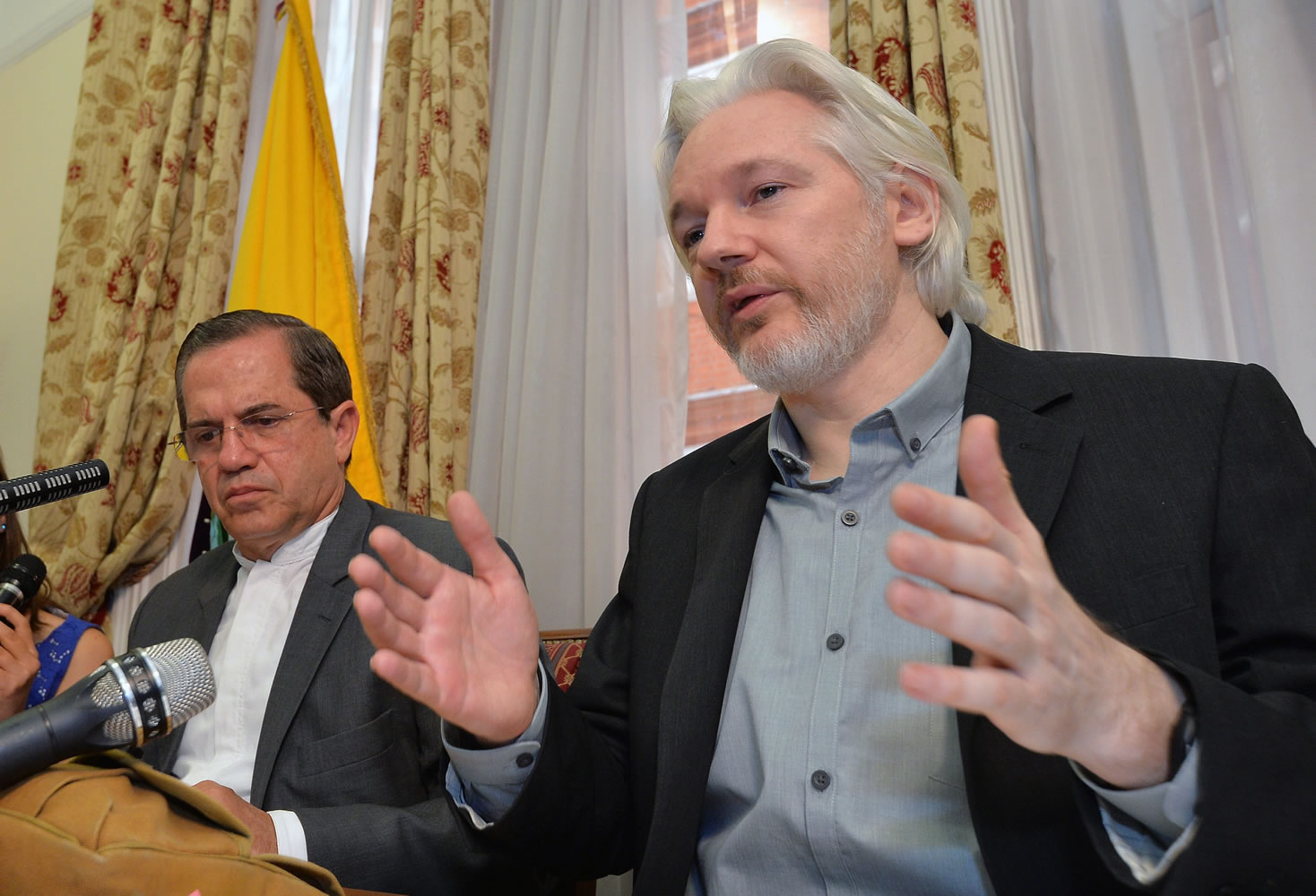LONDON — WikiLeaks founder Julian Assange said Monday he would “soon” be leaving the Ecuadoran Embassy in London, where he took refuge more than two years ago to avoid extradition to Sweden to face questioning for alleged sexual assaults.
But in a lengthy statement to reporters at the embassy, Assange did not give any indication of the exact timing or circumstances of his exit. And a WikiLeaks spokesman, Kristinn Hrafnsson, later clarified that Assange’s comments had been “a declaration of hope rather than a declaration that he would be walking out of the embassy.”
Hrafnsson said Assange would leave when British authorities “grant him safe passage to the airport and to Ecuador,” something the government here has repeatedly said it is unwilling to do.
A Foreign Office spokeswoman, speaking under the customary terms of anonymity, reiterated that stance Monday, saying, “We are clear that our laws must be followed and that Mr. Assange should be extradited to Sweden.”
By speaking to the media Monday, Assange may have been hoping to gain leverage in negotiations that have been locked in a stalemate for two years. Assange cited recent changes to British law that could protect him from extradition because charges in Sweden have not yet been filed. But a Home Office spokeswoman said that the legal changes were not retroactive and that Assange had “exhausted all appeal avenues.”
British press reports have suggested in recent days that Assange is in poor health and needs urgent medical treatment for heart and lung conditions. Assange, who appeared subdued and halting in his statement alongside the Ecuadoran foreign minister, acknowledged that two years in the embassy, without access to outdoor spaces or exposure to sunlight, had “caused certain difficulties.”
Since June 2012, Assange has been holed up in a small embassy apartment, vowing to defy what he describes as an international effort to persecute him for his role in releasing a vast trove of classified U.S. government documents. Although Assange has been granted asylum by Ecuador, British police guard the embassy round the clock and say he will be arrested if he leaves the embassy grounds.
Assange has long been sought in Sweden for questioning based on two women’s allegations of sexual assault.



